Lighting up Kiribati: How Matai Trading transformed energy access for remote communities
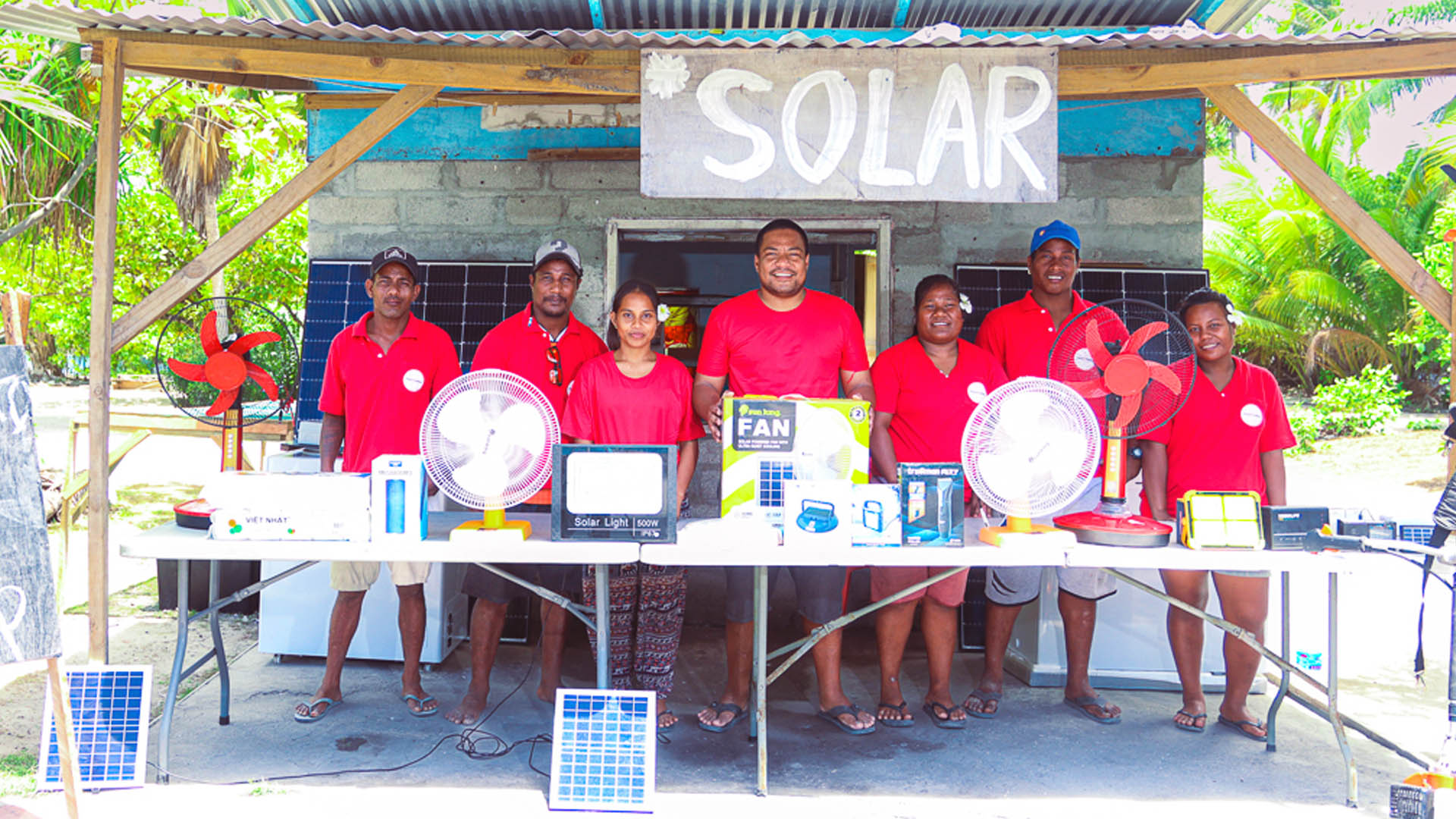
In this member spotlight article we chart the journey of Matai Trading, a last mile distribution company selling solar products in Kiribati.
Ten years ago, life after sunset was a daily struggle for thousands of families across Kiribati’s remote islands. In the rural areas of the capital island, Tarawa, and throughout the outer islands, around 60% of the population — roughly 70,000 people — lived without access to safe, reliable, or affordable energy.
For these communities, the only alternative to darkness was often the dim, smoky glow of a kerosene lamp — a costly and dangerous solution that put both health and homes at risk. Children couldn’t study after sundown, families struggled to stay connected with loved ones abroad, and local businesses lost precious income once daylight ended.
That’s where Matai Trading stepped in.
Since 2015, Matai Trading has been at the forefront of delivering life-changing off-grid solar solutions to some of the most isolated parts of Kiribati. Through a strategic partnership with leading solar supplier Sun King, the company has sold more than 7,000 solar units — ranging from compact solar lanterns to full Solar Home Systems with mobile charging capabilities.
“For too long, reliable light was something only the urban centres could count on,” says Maatai Matai, CEO of Matai Trading. “We saw that gap, and we knew solar energy could offer a safer, cleaner, and more affordable way to light up homes — no matter how remote.”
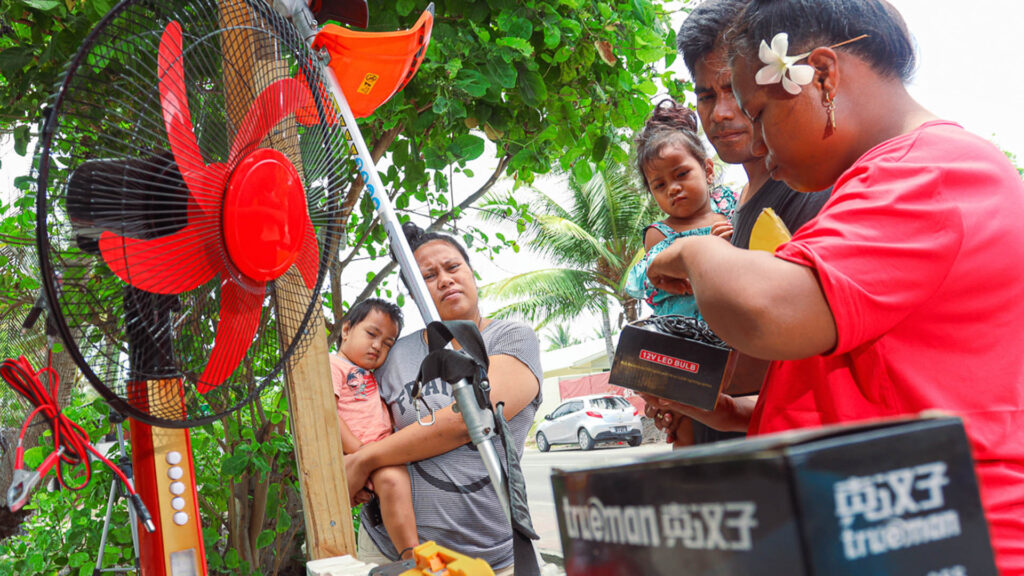
A safer, cleaner alternative to kerosene
Before Matai Trading’s products became available, many rural households relied on kerosene lamps. While these lamps offered a temporary solution, they came at a steep cost: not just financially, but in terms of health and safety. The risk of house fires, combined with the toxic fumes, made kerosene an unsustainable and dangerous choice.
“Every family deserves a safe home,” explains Maatai. “When we introduced solar lamps, it was about more than just light — it was about peace of mind for parents and a healthier environment for their children.”
By replacing kerosene lamps with solar lighting, Matai Trading’s customers have eliminated both fire risks and indoor air pollution. In the process, the company has helped prevent an estimated 10,000 kilograms of CO₂ emissions annually.
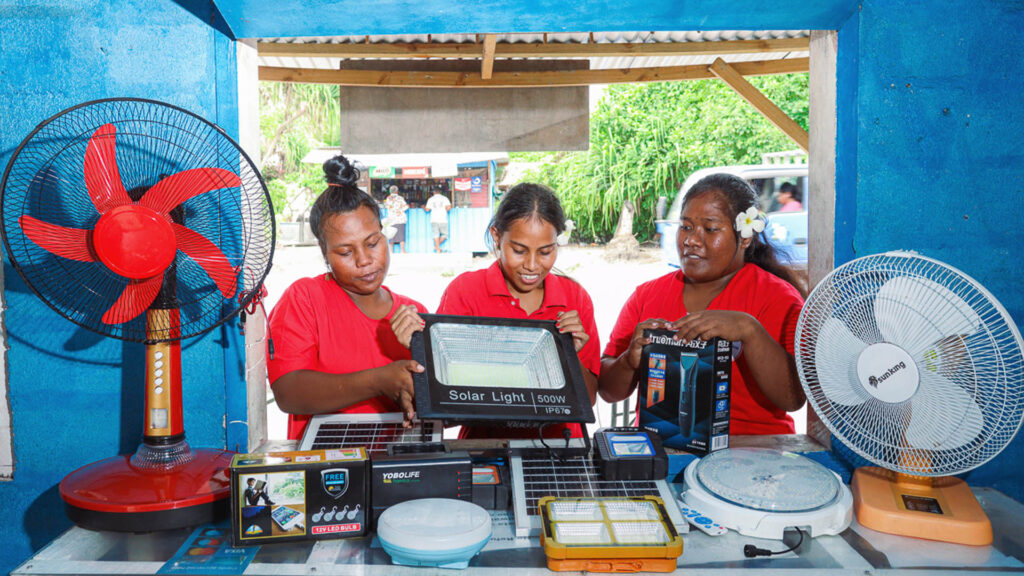
Lighting the way for connection and learning
The lack of reliable power wasn’t just a safety issue — it affected almost every part of daily life. Without electricity, parents were unable to charge mobile phones to call their children working overseas, cutting off vital communication lines that often supported both emotional and financial wellbeing.
Students also faced challenges. Without light at night, study hours were severely limited, putting their academic progress at risk. But thanks to Matai Trading’s affordable solar solutions, more than 2,000 students can now extend their learning long after the sun sets.
“It’s incredible what a single light can do,” says Maatai. “It can turn a quiet, dark room into a classroom, a shop, or even a family gathering space.”
Empowering local economies after dark
The benefits of reliable lighting extended far beyond the home. For local fishermen, the arrival of solar lighting meant fish could be stored and sold later into the night, preventing losses from unsold, spoiled catch. Women selling local produce and handmade crafts could keep their market stalls open longer, increasing daily income. Even small retail shops, which once had to shut their doors at dusk, could continue serving their communities late into the evening.
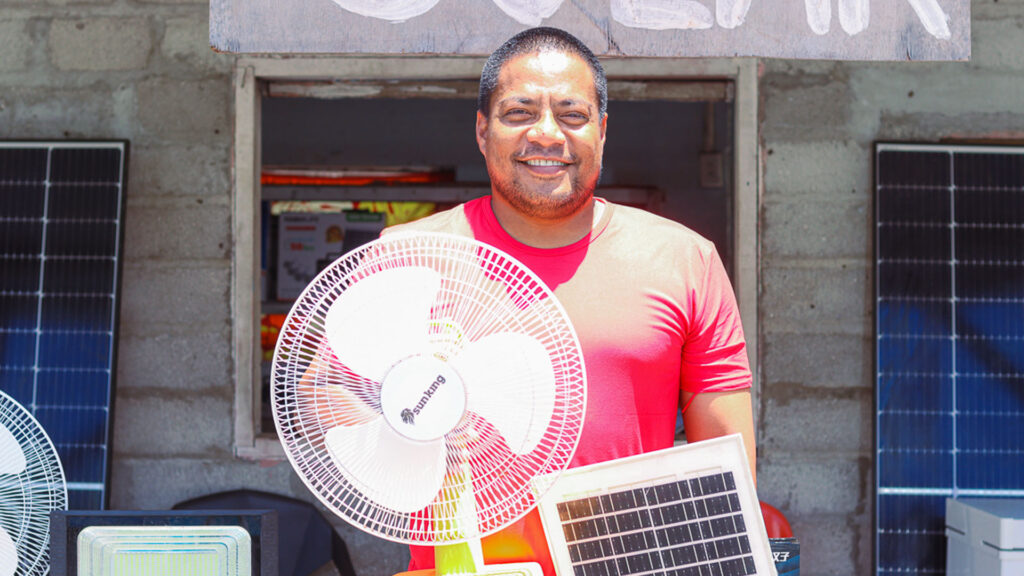
Affordable, durable, and accessible solutions
One of the keys to Matai Trading’s success has been its commitment to affordability and accessibility. Prices range from as little as $15 for basic solar lanterns to $190 for full Solar Home Systems, ensuring that families across income levels can afford a clean energy solution.
To ease the financial burden even further, the company introduced flexible payment plans, allowing customers to pay small upfront deposits and cover the remaining cost in weekly instalments. Matai Trading also offers the PAY AS YOU GO (PAYG) model, using Sun King’s built-in remote activation system, and even short-term leasing options for special events.
“Energy shouldn’t be a luxury,” emphasises Maatai. “We’ve worked hard to make sure that even if a family can’t pay everything upfront, they can still bring light into their home the same day.”
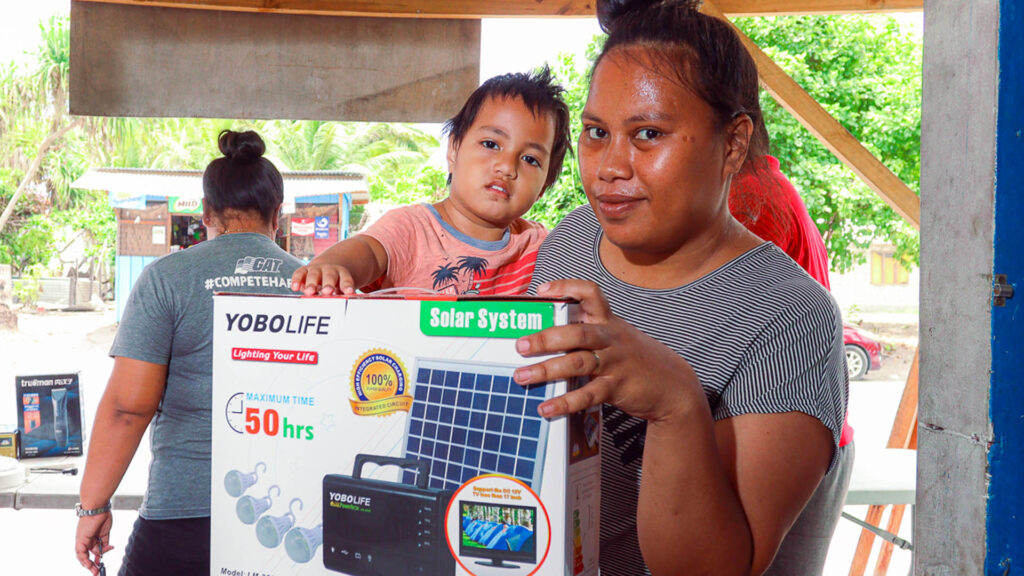
Scaling impact through growth and learning
Matai Trading’s impact has grown not only through its products but also through its strategic decisions as a business. The company strengthened its operations by hiring skilled staff, improving stock management, and streamlining cash flow.
A major milestone came in 2023, when the company secured a $50,000 repayable grant from the Pacific Greenpreneurs Incubator Programme, funded by the Qatar Fund for Development and managed by the Global Green Growth Institute (GGGI). Participation in the programme also equipped the team with new tools and knowledge in customer research, sustainability principles, product-market fit, and impact measurement.
“That programme didn’t just give us funding,” reflects Maatai. “It gave us the knowledge and confidence to scale our business and reach more communities who need us.”
A decade of impact and counting
From 2015 to 2025, Matai Trading has helped rewrite the story of energy access in Kiribati. With over 7,000 solar units sold, more than 10,000 lives improved, and $200,000 AUD in annual sales, the company is not just providing products — it’s lighting the way to a safer, more connected, and more resilient future for Kiribati’s rural communities.
“Our goal was never just to sell solar lights,” concludes Maatai. “Our goal was to change lives — and we’re proud to see that happening every single day.”
Photos
All photos credit: Maatai Matai / Matai Trading
